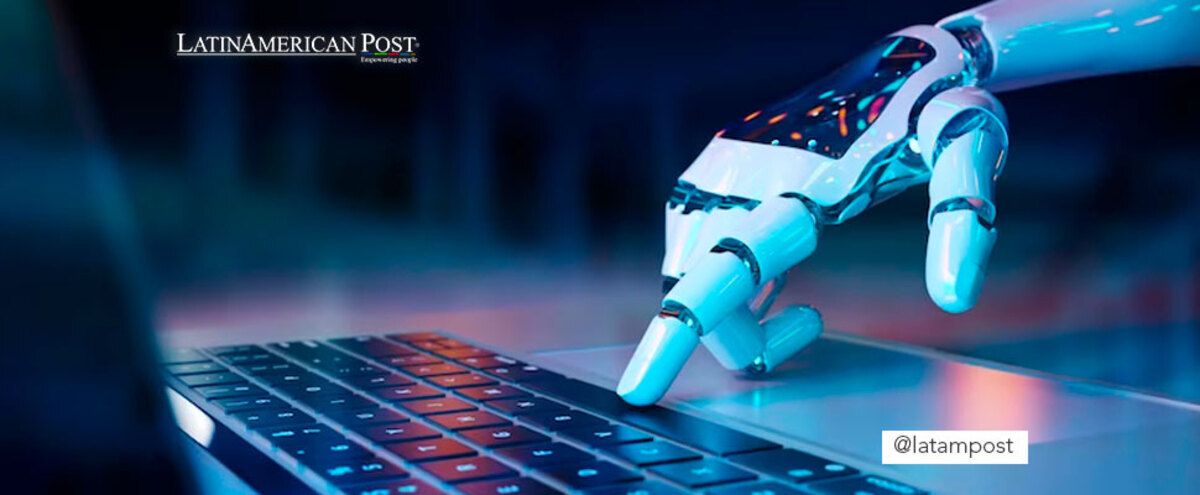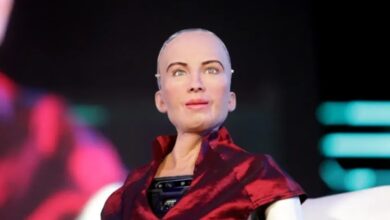The Challenges of Artificial Intelligence for Education
Since February 1996, when an IBM supercomputer defeated Kasparov, the world champion, in a game of chess, it was very clear that the world would not be the same and that artificial intelligence would begin to pose different challenges for humanity.

Photo: IA
LatinAmerican Post | Sergio Ortiz
Escucha este artículo
Leer en español: Los retos de la inteligencia artificial para la educación
One of the first questions modern humanity asked was What would happen the day artificial intelligences were capable of doing all human tasks?: Would unemployment increase? Would there be more free time to devote to creative activities? Today, artificial intelligence is a daily reality and these questions continue to grow in all areas of human activity, from that aspect of work, through the artistic field and reaching what concerns day life.
A question that is more key than the others is, what happen to young children who begin to live their childhood together with these possibilities of technology? what about young people and their world discovery? And how will the education and training of a human being change by having artificial intelligence tools that anyone can use from their cell phone?
Also read: What is the main reason for mass layoffs at companies like Meta and Google?
In this article we want to point out some of the challenges that education must face and on which pedagogy must reflect.
Imagination and Education with Artificial Intelligence
One of the most important skills that a well-rounded education develops is the ability to make visual associations and put different shapes together to create new images. This is the way an engineer's mind works to devise novel ways to improve a tool or machine, it is the skill an artist uses to produce a work of art, and it is what we use to have a mental map of our frequent tours and knowing how to return to our house every day.
If now, from their first years of education, a child has access to tools like DALL E 2 or Midjourney, which generate images from a simple clue, how will you fully develop this cognitive skill of image formation and combination?
Artificial Argumentation
The writing of argumentative essays is a key element of an education that aims to train citizens capable to think critically and reflecting on a problem for themselves. Through this type of writing exercises it is possible to learn to take scattered information on the internet or in our heads, and use it strategically to support a specific thesis.
TheChatGPT artificial intelligence application is capable of writing on almost any topic based on the prompts given to it. The application can develop the topic in an argumentative way, which prevents the student from using his mind to find out the best way to organize his arguments to defend his position. How to take this risk to turn it into an educational advantage?
End of Plagiarism
Currently, almost all universities in the world have tools that can detect plagiarism in student work: the text is passed through a detector and it indicates if what is written was taken directly from an Internet page and the student just pasted it into his document without citing the source.
But how can it be determined and proven that the text was not written by artificial intelligence, if the AI text is unique and does not leave a detectable trace on the network? In line with the previous challenge, the effort to think would tend to disappear for the students, since it is enough to ask ChatGPT to write the text for the class, like an essay, a summary or a statement of ideas.
Artificial Intelligence Pedagogy
Just as at some point elementary, high school and university students stopped doing complex mathematical operations in their heads and began to use calculators, in the same way, functions of our intelligence that until now we have considered basic will begin to be supported by artificial intelligence.
For this reason, educators and pedagogues must be willing to learn about all these tools and reflect on their possibilities, in order to use and take advantage of them in their profession. This implies for educators to be up-to-date with technology and use it with the same or greater easiness than their students.
Among the essential questions that must be answered is just the role of the teacher in this training process that is education, since the tendency to replace educators with AI tools that can provide an immense amount of information can also be generated. information and encouragement. It is a challenge that implies giving human intelligence a central place, the place from which the goals and objectives of the education we want to build the world we imagine are generated.




